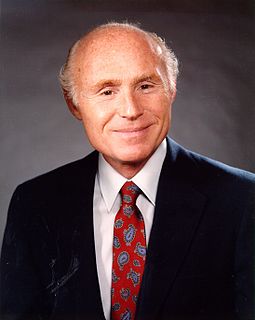A Quote by Sonia Sotomayor
My judicial philosophy is fidelity to the law.
Quote Topics
Related Quotes
Fidelity and allegiance sworn to the King is only such a fidelity and obedience as is due to him by the law of the land; for were that faith and allegiance more than what the law requires, we would swear ourselves slaves and the King absolute; whereas, by the law, we are free men, notwithstanding those oaths.
Much of the Constitution is remarkably simple and straightforward - certainly as compared to the convoluted reasoning of judges and law professors discussing what is called 'Constitutional law,' much of which has no basis in that document....The real question [for judicial nominees] is whether that nominee will follow the law or succumb to the lure of 'a living constitution,' 'evolving standards' and other lofty words meaning judicial power to reshape the law to suit their own personal preferences.
The constitution is either a superior paramount law, unchangeable by ordinary means, or it is on a level with ordinary legislative acts, alterable when the legislature shall please to alter it. It is emphatically the province and duty of the judicial department to say what the law is. This is the very essence of judicial duty.
People must be confident that a judge's decisions are determined by the law and only the law. He must be faithful to the Constitution and statutes passed by Congress. Fidelity to the Constitution and the law has been the cornerstone of my life and the hallmark of the kind of judge I have tried to be.
We are deeply concerned about the situation in Russia with regards to human rights. There are several examples of this situation, such as the new law requiring NGOs to register as "foreign agents", the law banning homosexual "propaganda", problems with the rule of law and arbitrary judicial processes, and court rulings against the opposition.
































